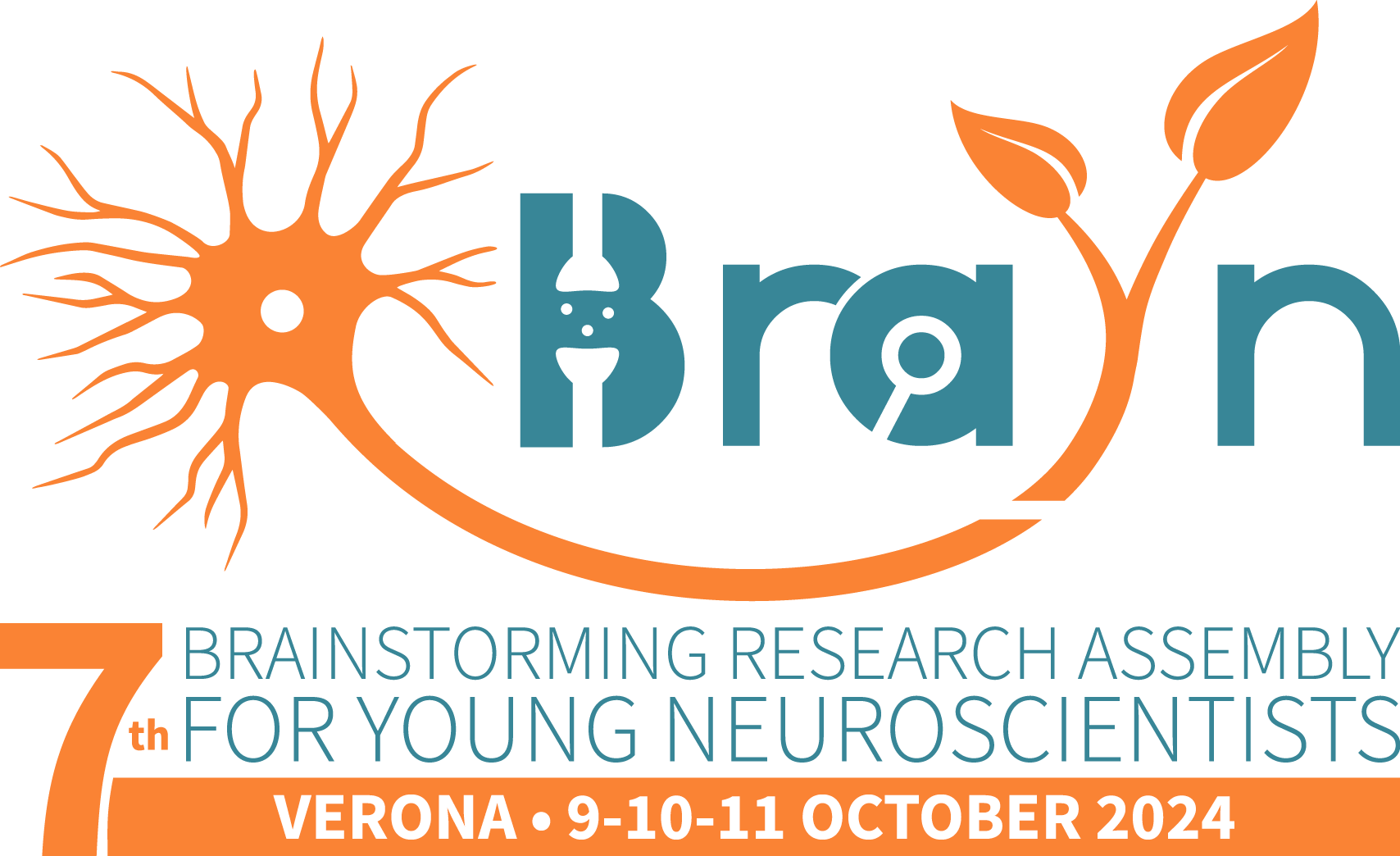Scientific Committee
SCIENTIFIC COMMITTEE
– Oral selection, talk evaluation and Lecturers invitation –
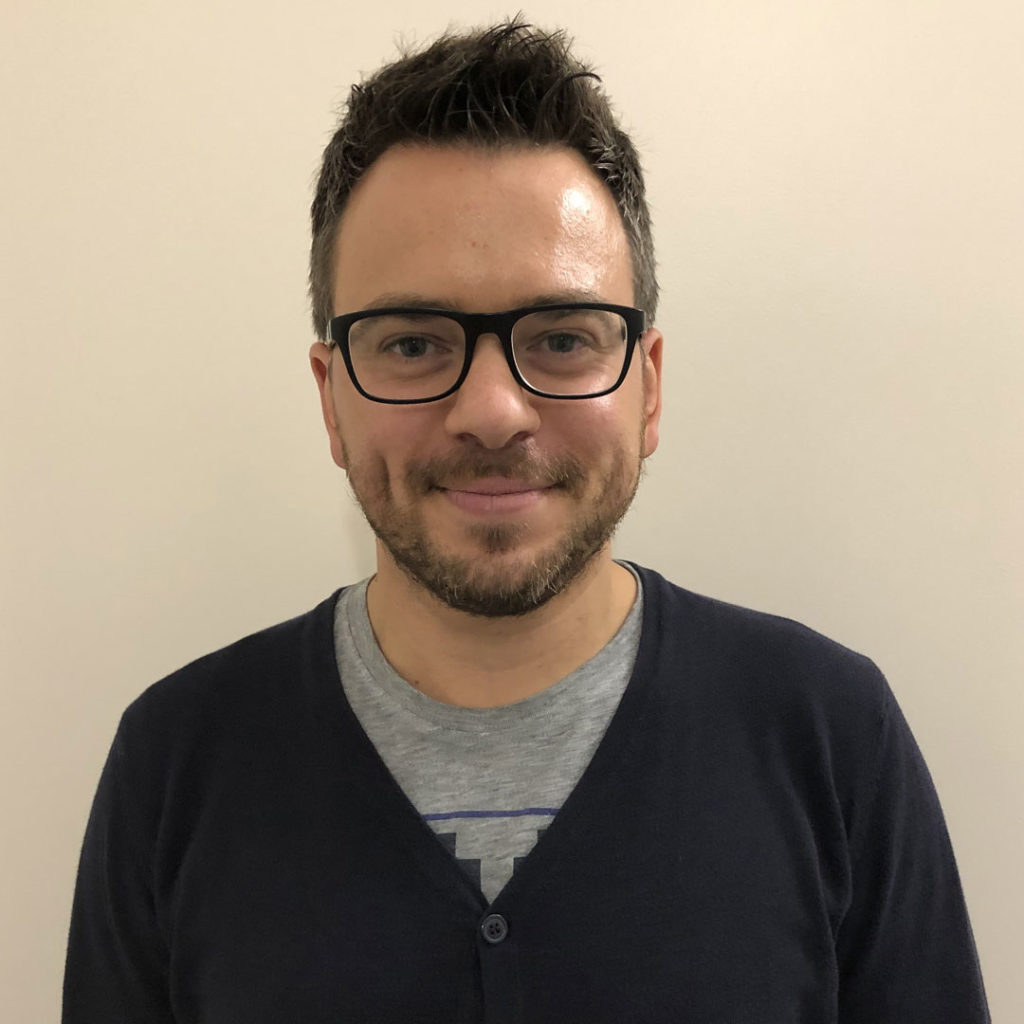
Stefano Angiari
(Tap/Click on the name to see the bio sketch)

Stefano Angiari
Division of Immunology, Otto Loewi Research Center, Medical University of Graz (Austria) •
I obtained a master’s degree in Molecular Biology in 2007 and a Phd in Cellular and Molecular Pathology and Biology in 2011. I started my research activity at the University of Verona (Italy), where I studied the molecular mechanisms controlling leukocyte trafficking in the central nervous system during neuroinflammation, as well as the immuno-modulatory and neuroprotective properties of adipose-derived mesenchymal stem cells (ASCs) and ASC-derived nanovescicles. I then moved to the Trinity College Dublin (Ireland), to develop a research project investigating the metabolic regulation of adaptive immune responses. Recently, I’ve established my independent research group at the Medical University of Graz (Austria), where I focus my research activity on the regulation of T cell function in inflammation and autoimmunity.

Ganna Balagura
(Tap/Click on the name to see the bio sketch)

Ganna Balagura
University of Genoa(Italy) IRCCS G. Gaslini Institute, Genoa (Italy) • Ganna Balagura graduated in Medicine and Surgery at Università degli Studi di Genova (2016) and she is in her last year of PhD in Pediatric Neurology at "G. Gaslini" Institute in Genova. The focus of her research are genetic epilepsies and neurodevelopmental disorders, i.e. synaptopathies. Her work spans from clinical phenotyping of the patients with genetic epilepsies and bioinformatic tools for deep phenotyping (Human Phenotype Ontology), to experimental studies around the pathomechanisms of these genetic disorders, to precision medicine approaches. Ganna is now based in Amsterdam, at Matthijs Verhage's Lab (Functional Genomics department, Vrije Universiteit). Her current project consists into investigating a novel therapeutic tool based on non-coding RNAs for the treatment of developmental and epileptic encephalopathies caused by gene haploinsufficiency. She is testing these new compounds on human neurons derived from induced pluripotent stem cells.
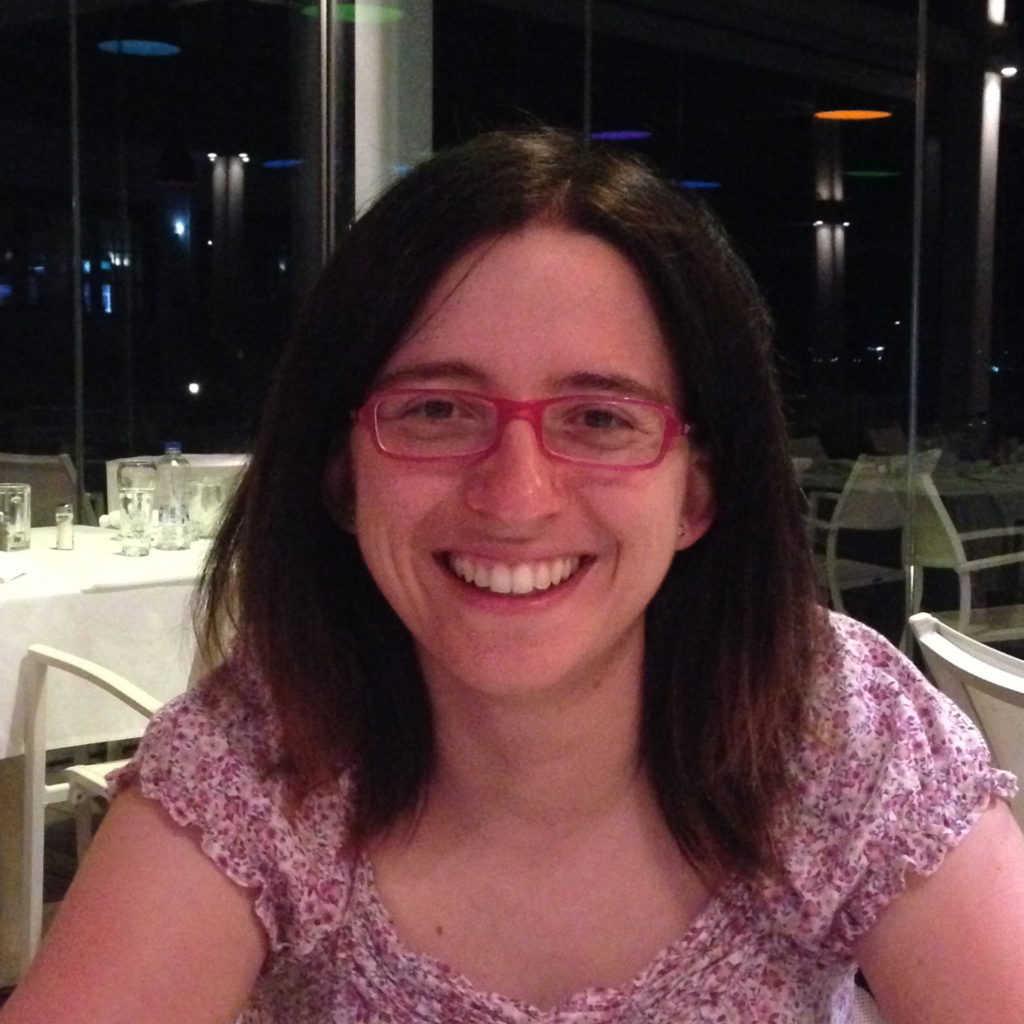
Barbara Bettegazzi
(Tap/Click on the name to see the bio sketch)

Barbara Bettegazzi
San Raffaele Scientific Institute, Milan (Italy) • I graduated in Medical Biotechnology in 2006 and got my PhD in Molecular Medicine in 2012 at the Vita-Salute San Raffaele University in Milan. My PhD focused mainly on Alzheimer's disease pathogenesis, studying the mechanisms regulating the expression and activity of BACE1, the main β-secretase of the brain. During my PhD I spent two years in Munich, at the Ludwig Maximilian University in the laboratory of C. Haass, a pioneer in the Alzheimer’s disease field. I recently moved to the field of gene therapy for complex neurological disease and I am currently working as a post doctoral researcher in Michele Simonato’s laboratory at San Raffaele Scientific Institute. The main focus of my research now is the study of the molecular and physiological alterations in GABA-A receptors in the course of epilepsy, to design a therapeutic strategy able to modulate this inhibitory system in drug resistant epilepsy patients.
Giovanna Calabrese
(Tap/Click on the name to see the bio sketch)
Giovanna Calabrese
Department of Chemical, Biological, Pharmaceutical and Environmental Sciences, University of Messina (Italy) • Giovanna Calabrese obtained a PhD in Medical Embryology, Pathology and Experimental Hematology. Currently, I’m Associate Professor in Physiology at the University of Messina, Department of Chemical, Biological, Pharmaceutical and Environmental Sciences. My main research topic is regenerative medicine and tissue engineering applied to both neural and osteo/chondral regeneration. Specifically, my studies are focused on the molecular and cellular mechanisms behind the repair capacity of the combination between mesenchymal stem cells, 3D biomimetic materials and growth factors, both in vitro and in animal models.
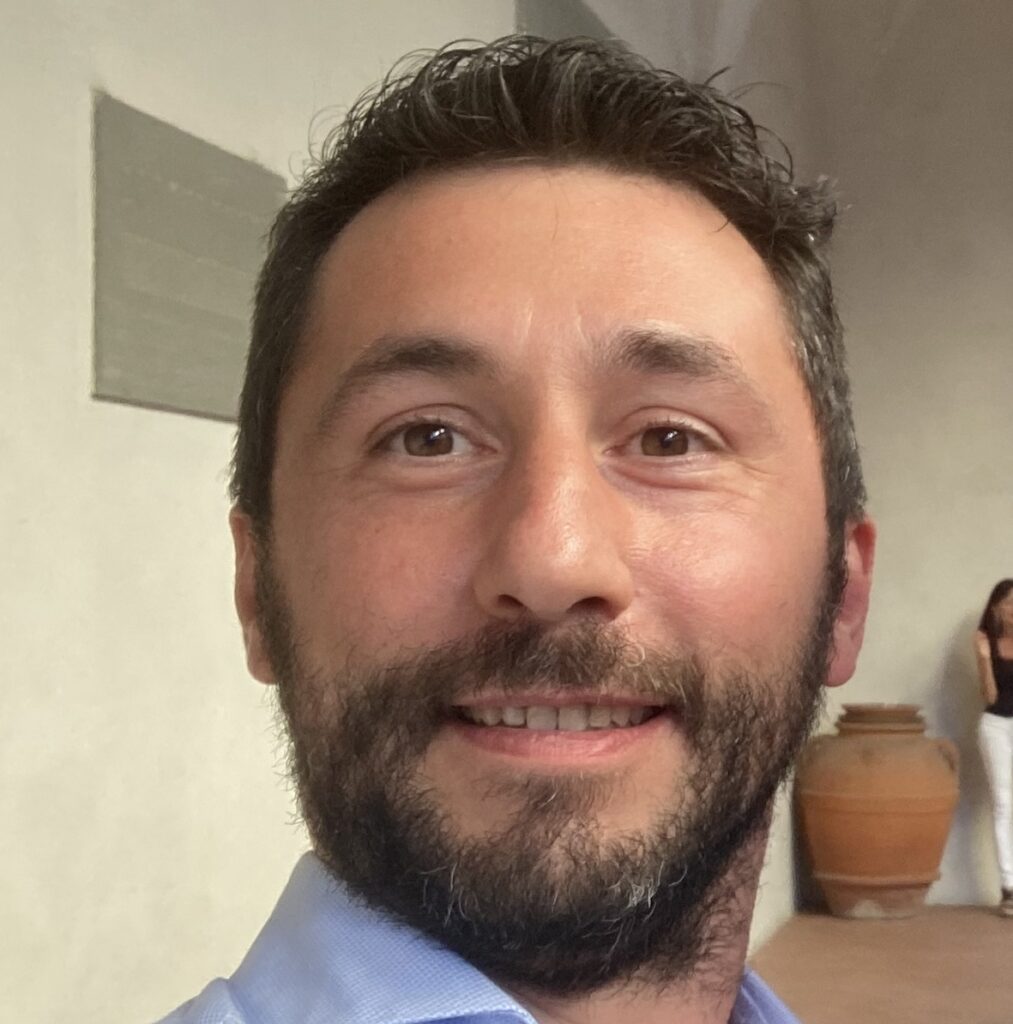
Marco Cambiaghi
(Tap/Click on the name to see the bio sketch)

Marco Cambiaghi
Department of Neurosciences, Biomedicine and Movement Sciences. University of Verona (Italy) Marco Cambiaghi graduated in Biology at the University of Milan (2006) and earned his PhD in Experimental Neurology at the San Raffaele University of Milan (2010) with a thesis on the neurophysiological effects of tDCS in mice. He also spent some research periods at the CUNY and Columbia University of New York and the Weizmann Institute of Science. From 2019, Marco is an Assistant Professor of Physiology at the University of Verona. Here, his research focuses on the relation between brain circuits activity and behavior in physiological and pathological conditions in rodents, as also the possibility to modulate them with non-invasive brain stimulation. In parallel, Marco is involved in science popularization by collaborating with Italian newspapers and various events of science dissemination.
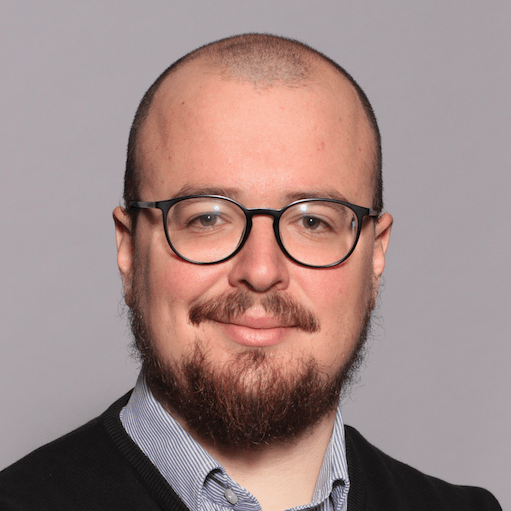
Sirio Cocozza
(Tap/Click on the name to see the bio sketch)

Sirio Cocozza
Università degli Studi di Napoli "Federico II" (Italy) • Sirio Cocozza obtained his Medical Degree at the University of Naples “Federico II”, Italy, in 2012, where he also completed his Residency in Radiology in 2018 and obtained a PhD in 2021, defending a thesis on the application of advanced Magnetic Resonance Imaging (MRI) techniques for the study of the cerebellum. His research interests include the application and the combination of different MRI techniques, including volumetry, functional MRI, diffusion MRI and relaxometry, to obtain in-vivo information on functional changes and pathophysiological mechanisms underlying the development of damage in neuroinflammatory and rare neurodegenerative disorders of the Central Nervous System.
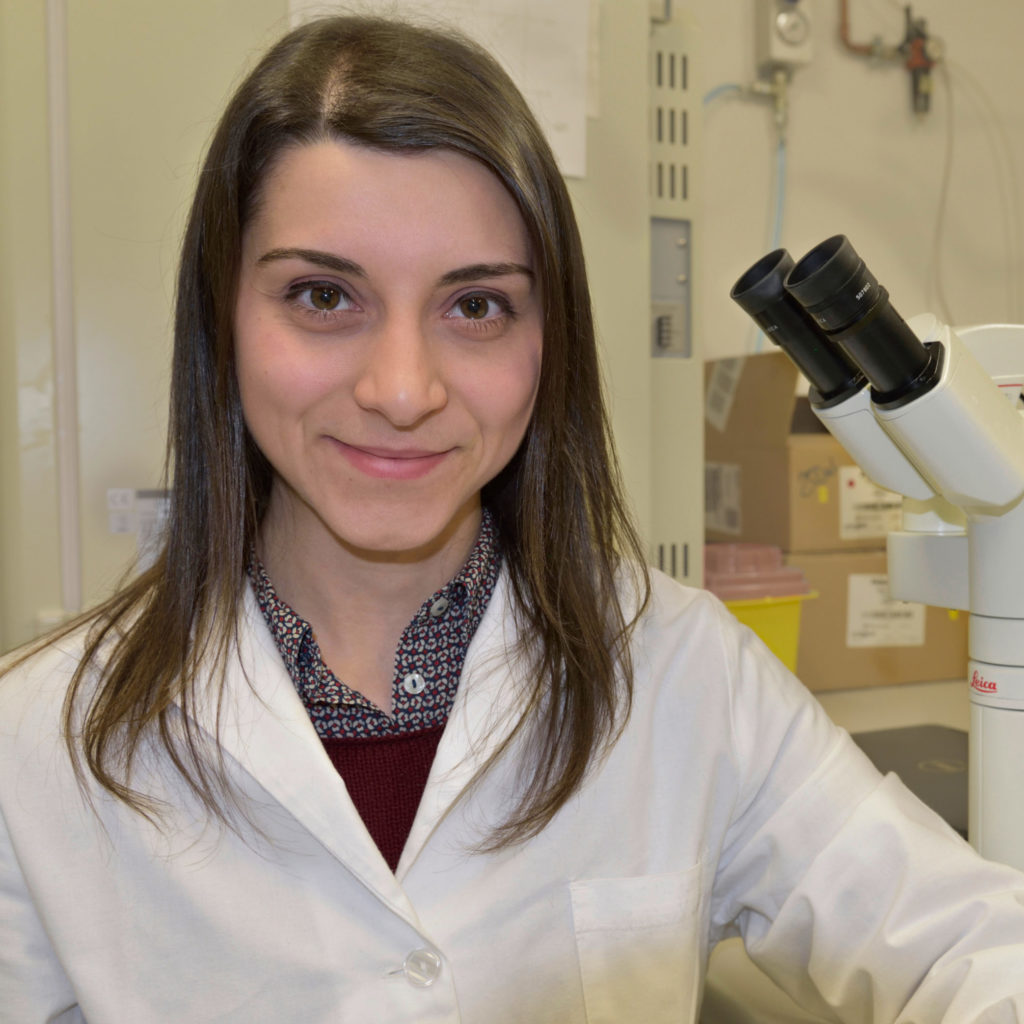
Giulia D’Arrigo
(Tap/Click on the name to see the bio sketch)

Giulia D’Arrigo
Neuroscience Institute - National Research Council of Italy, Milan (Italy) • Giulia D’Arrigo is a post-doc working in the lab of Dr Claudia Verderio at the CNR Institute of Neuroscience of Milan. She graduated in Neurobiology at the University of Pavia in 2015 and obtain in 2019 the PhD in Functional and Structural Genomics at the International School for Advanced Studies of Trieste (SISSA) in collaboration with the CNR Institute of Neuroscience in Milan. During her master internship in Neurobiology, she collaborated to demonstrate the transfer of miRNAs from glial inflammatory extracellular vesicles (EVs) to neurons. While attending her PhD program, she studied the dynamics of EV-neuron interaction exploiting optical manipulation, a technique that allows to trap and deliver single particles in a suspension of cultured cells in vitro and investigated the mechanisms by which EVs can interact and move following the neuronal network. Currently, she is studying the involvement of microglia-derived EVs in mediating the synaptic pruning, a process by which excessive synapses are eliminated in the developing brain.

Francesco Di Lorenzo
(Tap/Click on the name to see the bio sketch)

Francesco Di Lorenzo
Santa Lucia Foundation Scientific Institute, Rome (Italy) • Specialized in 2018 in Neurology at Tor Vergata University, my main clinical and scientific interests are in Neurodegenerative diseases (especially Alzheimer`s Disease and Fronto-Temporal Dementia) and Non-Invasive Brain Stimulation tools (such as TMS, tDCS, tACS, TMS/EEG). These novel techniques are able to investigate in vivo the mechanisms of cortical plasticity in humans and patients paving the way for future neuromodulation protocols.
Manuela Medelin
(Tap/Click on the name to see the bio sketch)
Manuela Medelin
Aptuit Srl, an Evotec company, Verona (Italy) • Following my Master degree in Pharmaceutical Chemistry and Technologies in April 2010, I continued my experimental training in Pharmacology at the Goethe University in Frankfurt for few months. Afterwards, I decided to explore a different scientific field and started my PhD in Neuroscience and Cognitive Sciences –specializing in Neurobiology, back again at the University of Trieste. In 2014 I continued my research activities in SISSA as a Postdoctoral Fellow mainly focusing on characterizing neuronal networks in both physiological and pathological conditions and how these are affected when interfaced with nanotechnologies. In 2018 I moved to Verona, at first as a Postdoctoral Fellow at the University of Verona and then as a Senior Scientist in Aptuit-Evotec working in the Electrophysiology group. I am currently involved in the Cardiac Safety Liabilities and in incoming stand-alone projects where the main target is an ion channel mainly exploiting automated patch-clamp technologies.
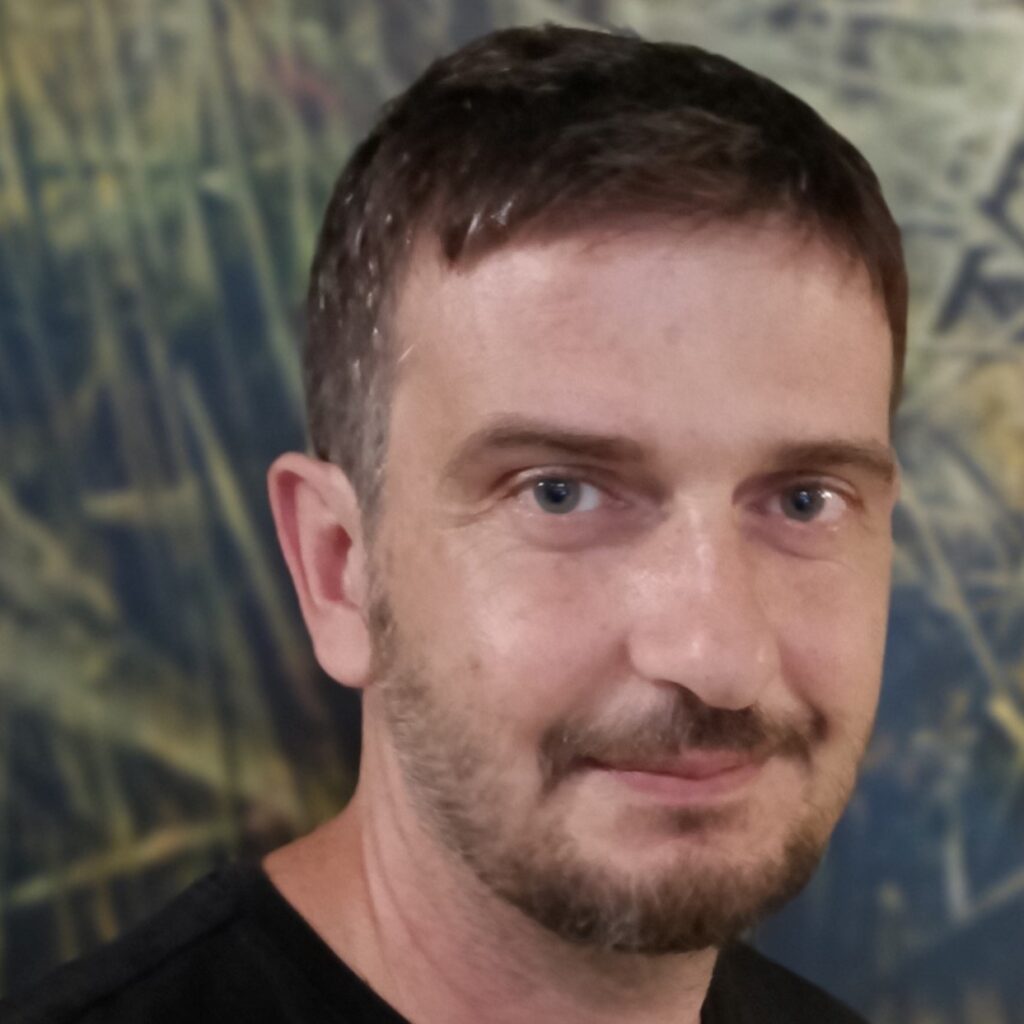
Giovanni Nardo
(Tap/Click on the name to see the bio sketch)

Giovanni Nardo
Istituto di Ricerche Farmacologiche Mario Negri IRCCS (Italy) • Dr Nardo's competence is in the field of neurodegenerative diseases, in particular MNDs. He has a broad background in Neurobiology and Molecular Biology with specific training and expertise in studying animal models of neurodegenerative diseases. Dr Nardo obtained a PhD in Biochemistry and Molecular Biology at the University of Parma (Italy). During this period, he focused on the molecular diagnostics of ALS. Subsequently, he moved to the United Kingdom as a Postdoc at the Sheffield Institute for Translational Neuroscience (SiTRAN), where he was involved in characterising ALS pathogenesis in transgenic mouse models under the supervision of Dr Bendotti and Professor Dame Pamela J. Shaw. Dr Nardo has long-standing experience in ALS mouse models and immune processes. Recently, he gave new insight into ALS pathobiology by investigating the immune system in mice and patients. Also, he was a partner in an EU-JPND project for the study of small non-coding RNA in ALS, and recently, he was granted by FightMND (AUS) to study the effect of Compound K as positive allosteric agonist of the purinergic P2X7 receptor in ALS mice in collaboration with the University of Queensland. Actually, he is the Head of the Neuromuscular Diseases Unit in the Molecular Neurobiology lab at the Mario Negri Institute in Milan, where he focuses on peripheral immune response in MNDs.
Rosa C. Paolicelli
(Tap/Click on the name to see the bio sketch)
Rosa C. Paolicelli
Department of Biomedical Sciences, University of Lausanne (Switzerland) • Rosa C. Paolicelli earned her bachelor of Medical Biotechnology at the University of Bologna, Italy, in 2006, and her MSc in Molecular Neuroscience at the University of Bristol, UK, in 2007. She graduated in 2011 with a PhD in Cellular and Molecular Biology, from the European Molecular Biology Laboratory (EMBL), and then worked as postdoc at the University of Zurich, Switzerland, in the Department of Systems and Cell Biology of Neurodegeneration. From 2018, Rosa is Assistant Professor at the Department of Physiology, University of Lausanne, Switzerland. Her lab focuses on the molecular and cellular mechanisms regulating microglia-synapse interaction in physiological and pathological contexts.
Ilaria Prada
(Tap/Click on the name to see the bio sketch)
Ilaria Prada
Axxam SpA, Bresso, Milan (Italy) • Ilaria Prada is Unit Manager in the Cell Biology Group at Axxam S.p.A., a Drug Discovery Company based in Milan-Italy. She obtained her MSc in Pharmaceutical Biotechnology from UNIMI of Milan and, her PhD from the UNISR of Milan studying the epigenetic regulation of gliotransmission. As Postdoc fellow at the Neuroscience Institute of the Italian Research Council (IN-CNR), she expanded her research interest from intracellular vesicle expression and trafficking to inter-cellular communication in the CNS via Extracellular Vesicles (EVs). She specialized in advanced microscopy techniques working at the University of Lausanne (Switzerland) and at the International School for Advanced Studies-SISSA in Trieste (Italy), investigating how glia-derived EVs can affect neuronal function in health and disease, with a special focus on neuroinflammation and neurodegeneration. In 2018, as Visiting Researcher at the University of Gothenburg (Sweden), she investigated the role of EVs in mitochondrial remodelling during neuroinflammation with super resolution microscopy techniques. At the end of the same year, she became Associated Researcher of the IN-CNR, where she investigated the impact of microglia-derived EVs in the early stages of Alzheimer’s Disease development. At the same time, she started her current career at Axxam designing and developing cell-based assays for the discovery of new the therapeutic molecules.
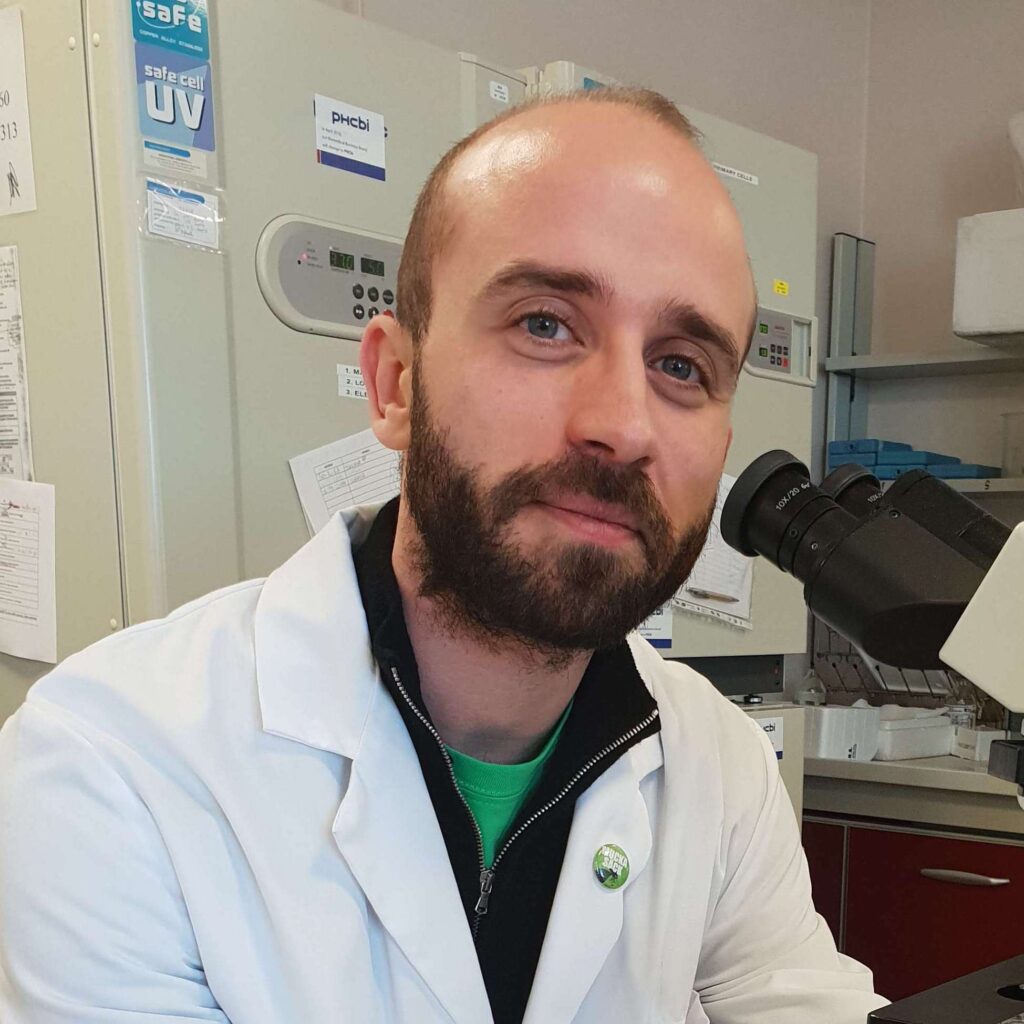
Marco Rasile
(Tap/Click on the name to see the bio sketch)

Marco Rasile
Humanitas University, Rozzano (Italy) • Marco Rasile earned his MS in Medical Biotechnology and Molecular Medicine at the University of Milan (Italy), and later his PhD in Morphological Sciences at the same institution. During his PhD, Marco studied the effects of infection-mediated maternal immune activation (MIA) on offspring’ brain development, a non-genetic animal model of psychiatric disorders. He is interested in the neurovascular unit (NUV) and in the investigation of its anomalies induced by inflammation during in-utero development or ageing processes. In 2019 Marco temporary joined the McCarthy lab (Baltimore, MD) to investigate sexual di-morphisms in cerebrovascular development. At present, he is a Post-doc in Michela Matteoli lab at Humanitas Research Hospital.
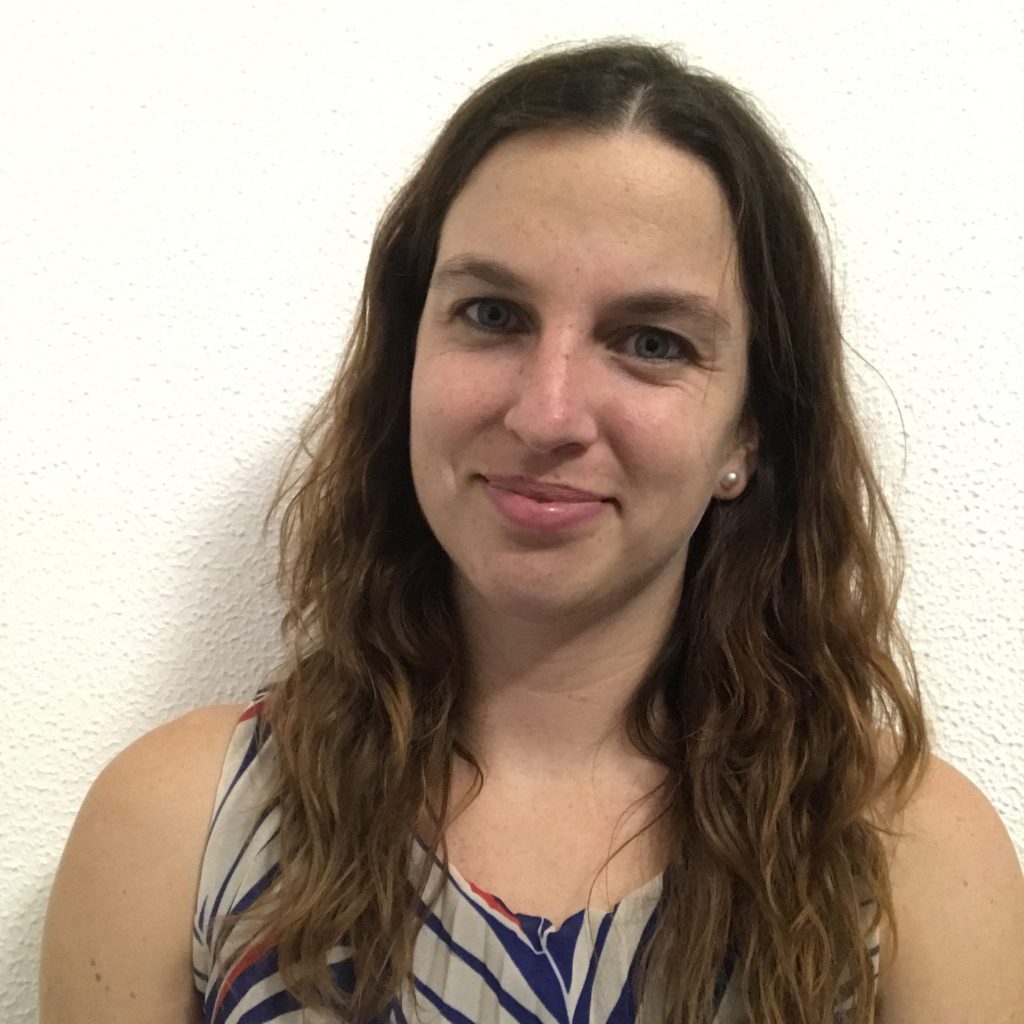
Simona Schiavi
(Tap/Click on the name to see the bio sketch)

Simona Schiavi
University of Genoa (Italy) • Simona is a Post-Doc working at the University of Genoa with Prof. Matilde Inglese. She obtained her Ph.D. in Applied Mathematics to Medicine at École Polytechnique of Paris studying how to derive microstructural tissue information from diffusion magnetic resonance imaging (dMRI) signal. In the past few years she participated in the development of a new technique to perform microstructural informed tractography whose aim is to increase the specificity of tractography and derive a more veridical brain structural connectivity. Currently, she is involved in several projects in testing the effectiveness of both dMRI microstructural imaging and tractography based structural connectivity to assess and predict the development of neurodegenerative diseases like multiple sclerosis.
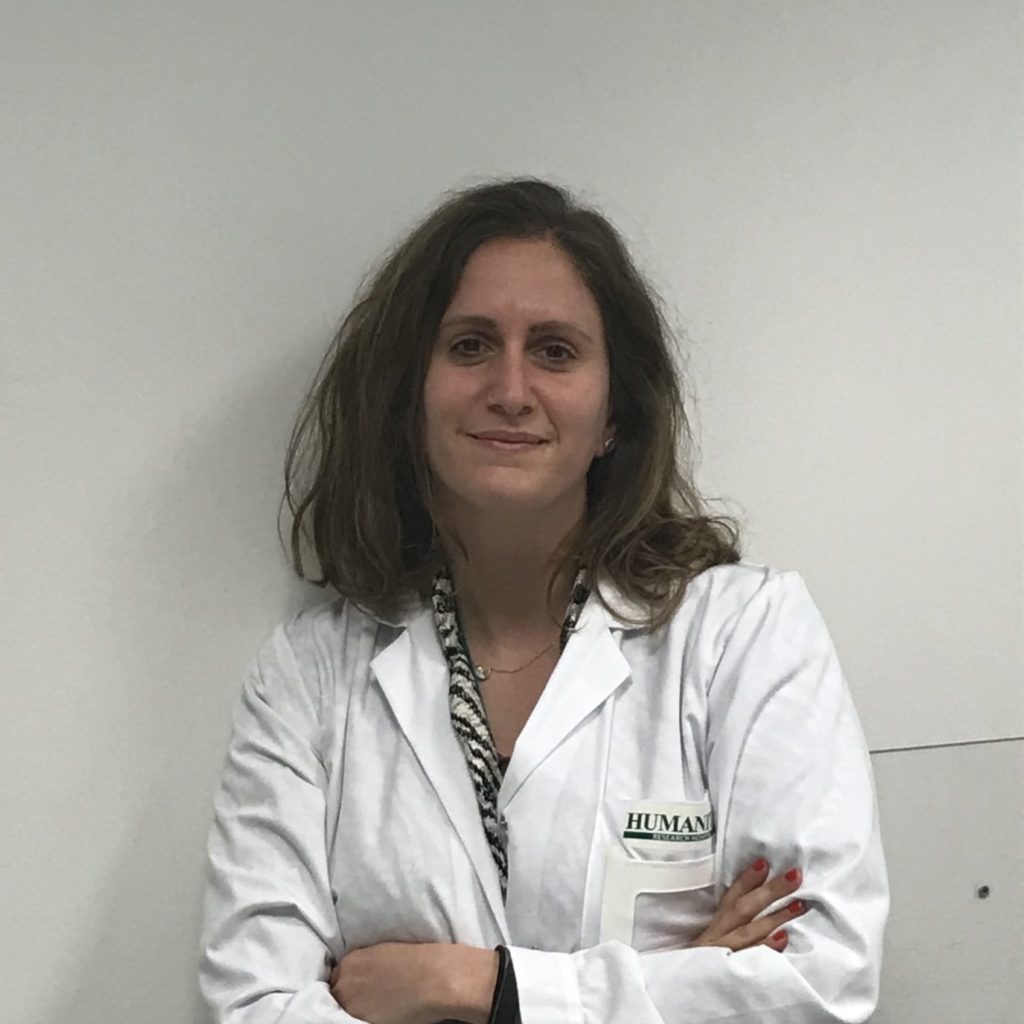
Elisabetta Stanzani
(Tap/Click on the name to see the bio sketch)

Elisabetta Stanzani
Humanitas Research Hospital, Rozzano (Italy) • Elisabetta Stanzani graduated in Biotechnology at the University of Bologna in 2011 and obtained her PhD in Biomedicine at the University of Barcelona in 2016. Since the beginning of her scientific adventure, she dedicated passionately to the study of Glioblastoma, Cancer Stem Cells and radiobiology. In the last year she joined the laboratory of Michela Matteoli at the Humanitas Research Hospital where she is currently investigating the crosstalk between surrounding non-cancerous cells and Glioblastoma.

